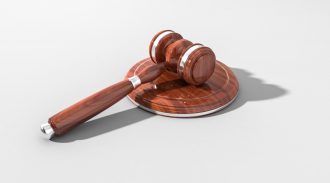September 5, 2018
Federal Circuit Remands After Patentee Failed to Disclose Priority Application to Standards Organization
In Core Wireless Licensing S.A.R.L. v. Apple Inc., [2017-2102] (August 16, 2018), the Federal Circuit affirmed in part, reversed in part, vacated in part, and remanded the district court decision that Apple infringed U.S. Patent Nos. 6,477,151 and 6,633,536, and that these patents were not invalid.
With respect to the ’151 patent, Apple challenged the finding of infringement, of no invalidity, and of no unenforceability. The Federal Circuit found the determination of infringement was supported by substantial evidence, and that the determination of validity came down to a disagreement between the experts, and the jury could reasonably credit the testimony of Core Wireless’s expert over that of Apple’s expert.
Apple’s theory of unenforceability was based on actions taken by Nokia, the original assignee of the ’151 patent, during its participation with ETSI, the standards-setting organization referenced in the ’151 patent. Apple argued that Nokia had an obligation to disclose the priority application to the ‘151 patent when it advanced its proposed revision of the GPRS standard and that, in breaching that obligation, Nokia waived its right to enforce the ’151 patent.
While the district court did not find waiver, the Federal Circuit noted that none of the stated reasons support the district court’s conclusion. The Federal Circuit found that the district court’s finding that Nokia did not have a duty to disclose its patent application because its proposal was rejected, was unsupported by the evidence. Nonetheless, the Federal Circuit remanded rather than reversing, because it was possible to interpret the district court’s ruling as being based on the conclusion that, because Nokia’s proposal was not adopted, no inequitable consequence flowed from Nokia’s failure to disclose its patent application.
The Federal Circuit noted that equitable defenses seek to prevent a party from unfairly benefiting from its wrongful actions, and in some circumstances courts have held that an equitable defense will not be recognized if the offending party did not gain a benefit from its wrongdoing.



































